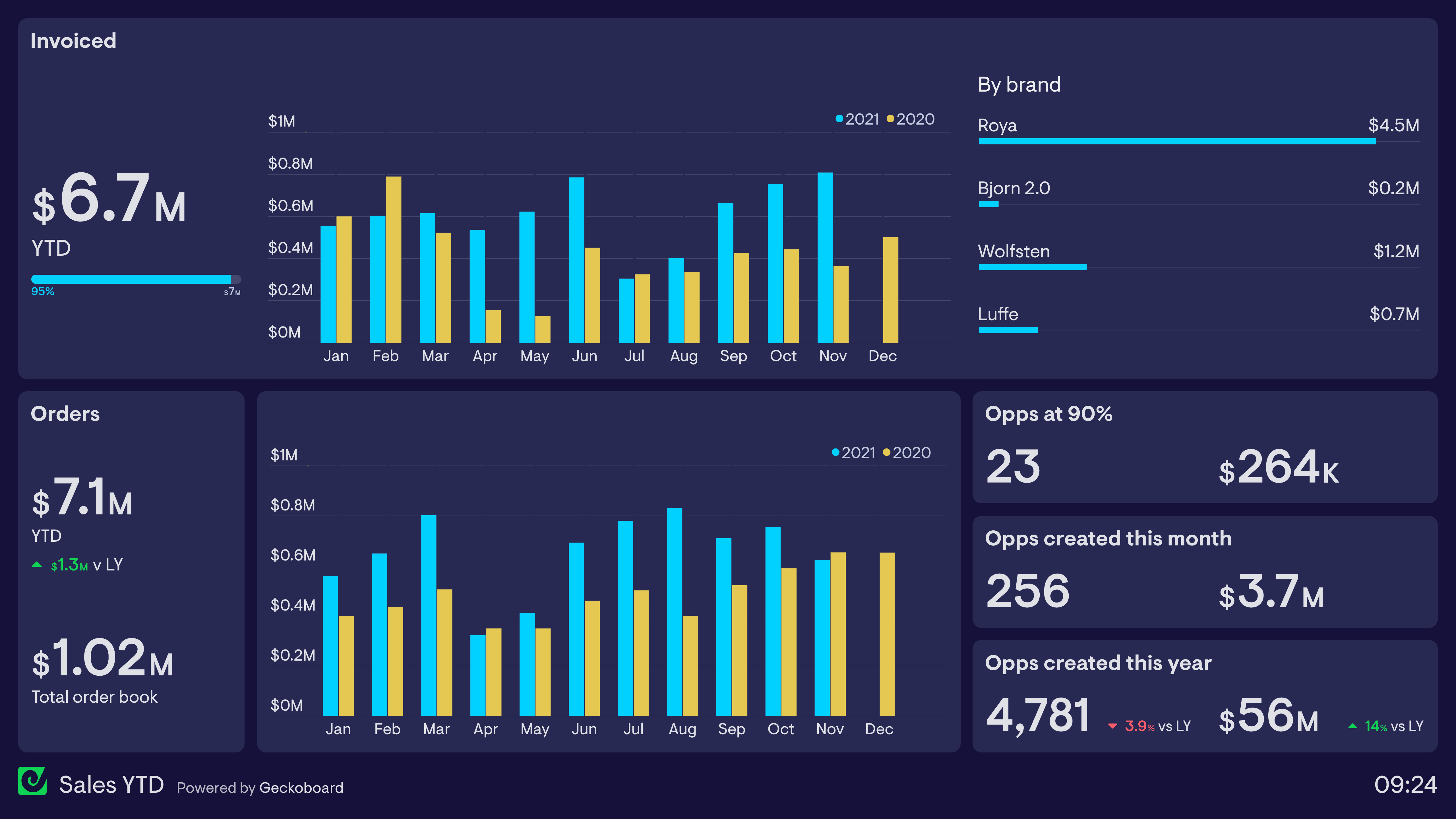An effective Customer Relationship Management (CRM) system is essential for commercial real estate (CRE) companies to connect with the right people and close deals more efficiently. A well-designed commercial real estate CRM system should be tailored to the unique needs of the industry and offer advanced contact management, deal pipeline management, document and deadline tracking, real-time reporting and analytics dashboards, automation and integration capabilities, user-friendly interface and customization options, and email marketing and campaign management tools. Using a CRM in commercial real estate brings numerous benefits such as optimized network utilization, efficiency through automation, streamlined deal pipeline management, a unified data repository, data-driven strategies, enhanced client interactions, increased operational productivity, and support for business expansion.
Understanding the Importance of a CRM in Commercial Real Estate
Customer Relationship Management (CRM) software plays a crucial role in the success of commercial real estate brokers and professionals. A CRM system provides essential tools for managing client relationships effectively, streamlining operations, and boosting sales.
By utilizing a CRM in commercial real estate, brokers can optimize their business operations in several key ways:
– Enhanced client relationships: A CRM helps brokers maintain a comprehensive view of their clients by organizing and tracking leads, managing contacts, and facilitating effective communication. This allows brokers to deliver personalized service and build lasting relationships.
– Increased efficiency through automation: CRM software automates repetitive tasks, freeing up valuable time for brokers to focus on high-priority activities. Automated workflows and process automation features streamline tasks such as lead nurturing and follow-up, allowing brokers to maximize their productivity.
– Effective deal pipeline management: A CRM system provides a centralized platform for brokers to track and manage their deal pipeline. Brokers can easily monitor the progress of each deal, set reminders for important deadlines, and ensure nothing falls through the cracks.
– Improved data management: A CRM eliminates the need for manual data entry and provides a centralized repository for all client information. This ensures data accuracy, avoids duplication, and allows brokers to access critical information whenever needed.
– Data-driven decision-making: CRM software generates valuable insights through analytics and reporting features. Brokers can leverage these insights to identify trends, make data-driven decisions, and implement targeted strategies for success.
– Optimized overall business operations: By combining all client-related activities in one system, a CRM enables brokers to streamline their operations, improve collaboration among team members, and ensure a seamless workflow.
Using a CRM in commercial real estate is essential for brokers who want to stay ahead in a highly competitive industry. It empowers brokers to deliver exceptional customer experiences, increase efficiency, and drive business growth.
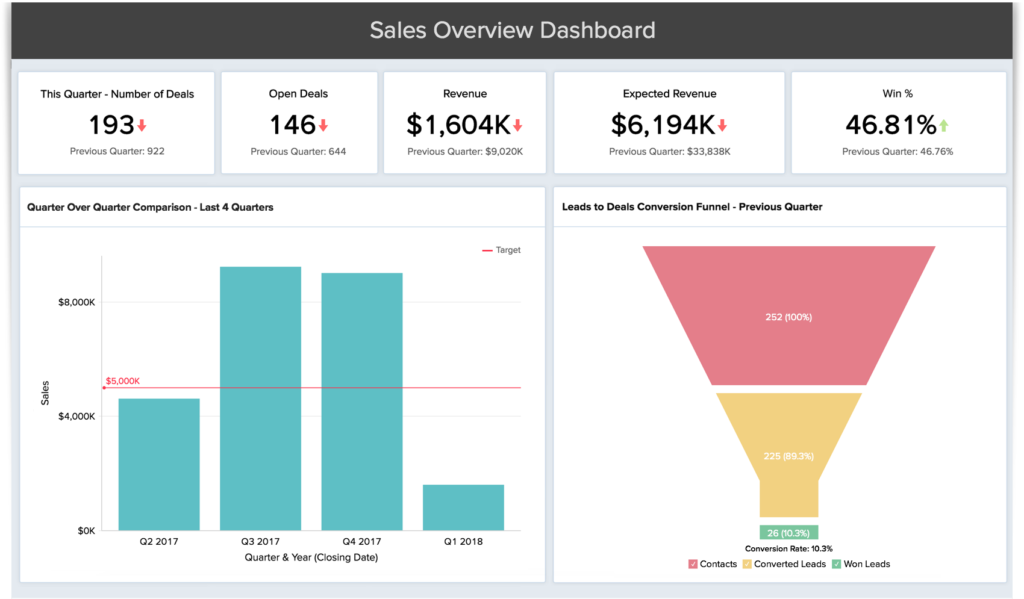
Choosing the Right CRM for Your Commercial Real Estate Business
When choosing a CRM for your commercial real estate business, it’s critical to consider various factors that will contribute to your success. The right CRM can significantly impact your efficiency, productivity, and overall business growth. Here are some key factors to keep in mind when selecting a CRM:
1. Lead Management Capabilities:
Efficient lead management is one of the essential functions of a CRM for commercial real estate. Search for a CRM that provides robust lead capturing, tracking, and organization features. The CRM should enable you to categorize leads, assign follow-up tasks, and track their progress through the sales cycle.
2. Marketing Automation Features:
An effective CRM should have marketing automation capabilities that streamline your marketing efforts. Look for features such as email automation, campaign management, and lead nurturing workflows. These tools can automate repetitive marketing tasks, save you time, and ensure consistent communication with your contacts.
3. Reporting and Analytics Tools:
A good CRM should offer comprehensive reporting and analytics tools to help you track your sales performance, measure the effectiveness of your marketing campaigns, and gain valuable insights for decision-making. Look for features such as customizable reports, visual dashboards, and data visualization capabilities.
4. User-Friendliness of the Interface:
Ensure that the CRM you choose has a user-friendly interface that is easy to navigate and understand. A cluttered or complicated interface can hinder your team’s adoption and productivity. Look for a CRM with an intuitive design and customizable layout that matches your preferred way of working.
5. Integration Options with Other Systems:
Consider the CRM’s capability to integrate with other systems and tools you use, such as email service providers, marketing automation platforms, and accounting software. A seamless integration between your CRM and other systems can streamline your workflows and help avoid data duplication or entry errors.
6. Customer Service and Support:
Look for a CRM provider that offers excellent customer service and support. Consider factors such as availability, responsiveness, and the availability of educational resources such as tutorials, documentation, and a supportive user community.
7. Scalability of the CRM:
Consider your future growth plans when selecting a CRM. Will the CRM be able to scale with your business as you acquire more clients, expand your team, or enter new markets? Ensure that the CRM you choose can accommodate your evolving needs and provide room for scalability.
8. Pricing:
Finally, compare pricing plans and packages offered by different CRM providers. Consider your budget and the value provided by each CRM option. Keep in mind that a CRM is an investment in your business’s success, so prioritize features and functionality over solely focusing on price.
By carefully weighing these factors, you can select the best CRM for your commercial real estate business that aligns with your unique needs and empowers you to effectively manage your operations, nurture client relationships, and drive business growth.
Top Commercial Real Estate CRMs in 2024
In 2024, there are several top CRM platforms available to commercial real estate professionals. These include Salesforce, HubSpot, Apptivo, Ascendix Real Estate, Wise Agent CRM, LionDesk, Follow Up Boss, Real Geeks, BoomTown, Podio, and kvCORE. Each of these platforms offers unique features and benefits that cater to the diverse needs of commercial real estate professionals. These top CRMs provide real estate brokers and professionals with essential tools ranging from contact management, automation capabilities, integrated marketing tools, and seamless lead generation. By utilizing these tools, they can streamline their operations and enhance client relationships.
Salesforce Real Estate CRM
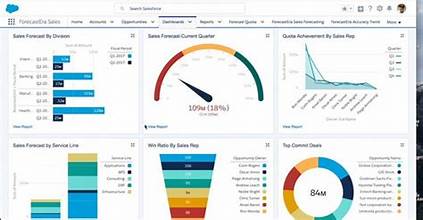
Salesforce is a widely recognized CRM platform that offers comprehensive capabilities in managing customer relationships. Although a generic CRM platform, it can be effectively utilized by real estate investment firms and commercial real estate brokers.
HubSpot CRM For Real Estate
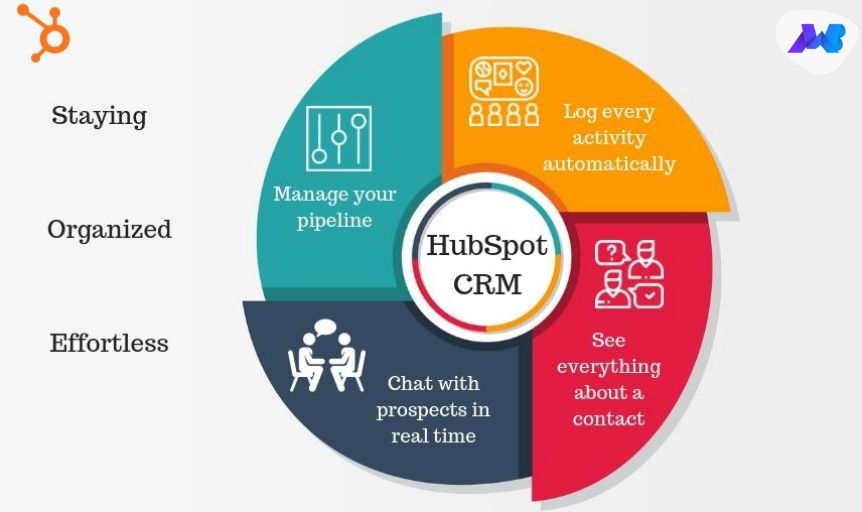
HubSpot is an all-in-one CRM platform that caters to the specific needs of real estate agents and brokers. With its comprehensive range of features and capabilities, HubSpot offers a powerful solution for managing contacts, generating leads, and optimizing marketing strategies in the real estate industry.
Apptivo Real Estate CRM
Apptivo stands out for delivering an excellent customer experience and offering seamless integration capabilities with various third-party tools. With its comprehensive features and user-friendly interface, Apptivo CRM provides real estate professionals with a powerful platform to streamline their operations and enhance client relationships.
Ascendix Real Estate CRM
Ascendix Real Estate CRM offers a comprehensive solution for managing properties, listings, sales, and leases in the commercial real estate industry. This CRM platform is specifically designed to meet the unique needs of commercial real estate professionals, providing them with the necessary tools to streamline their operations and drive business growth.
LionDesk Real Estate CRM
LionDesk is a user-friendly CRM designed specifically for real estate professionals, providing them with unique communication tools that set them apart from other CRM solutions in the market. With a range of features tailored to the needs of commercial brokers, LionDesk offers a comprehensive platform for managing client relationships and optimizing business operations.
Podio Real Estate CRM
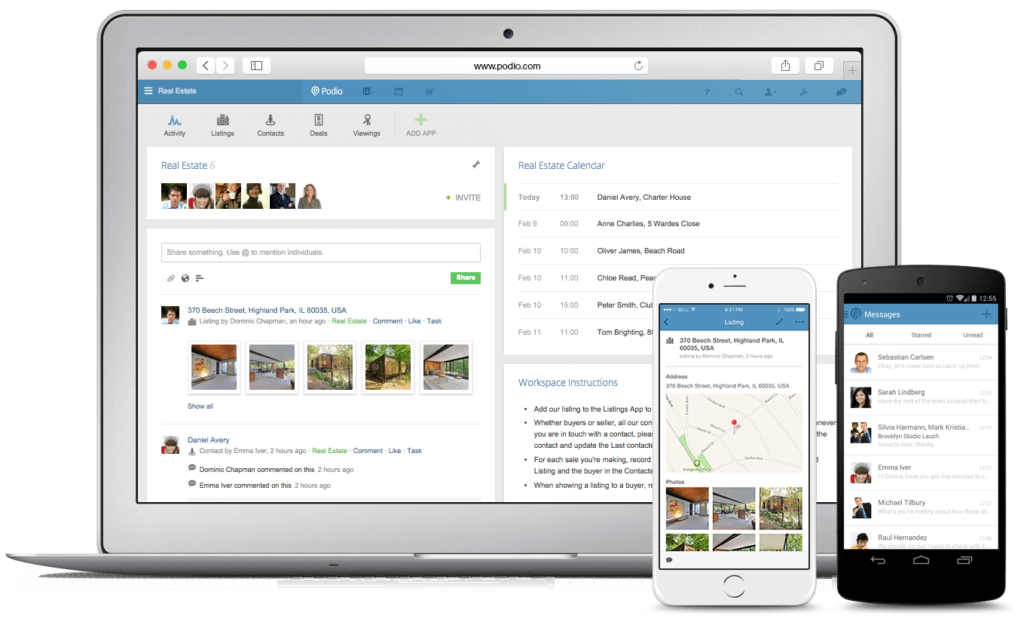
Podio CRM is a cloud-based software that provides a range of tools and features designed specifically for real estate professionals.
Why GO High-Level CRM For Real Estate?
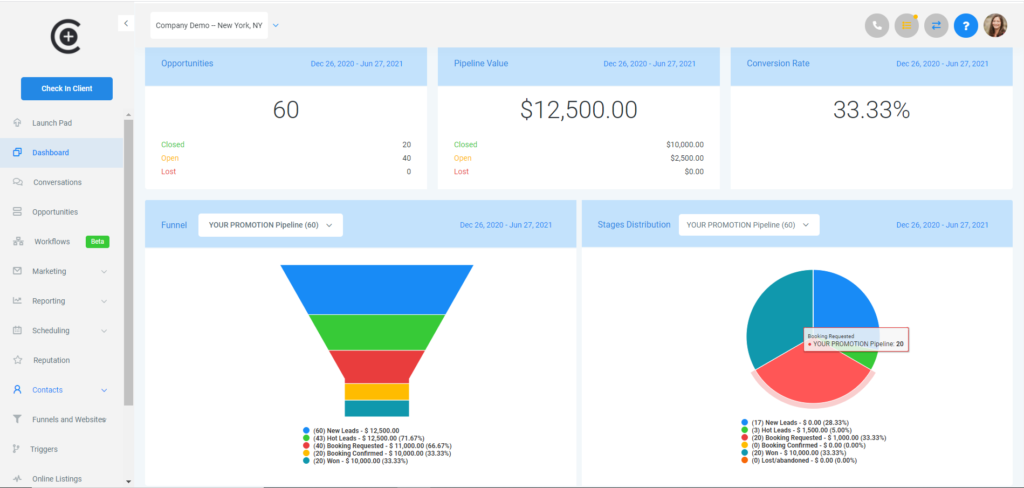
Go High-Level CRM simplifies and segments contacts into dynamic Smart Lists to help you engage every lead via SMS, Email, Workflow, and more.
Conclusion
Choosing the right CRM is important for commercial real estate brokers. Factors to consider include lead management, marketing automation, user-friendliness, integration options, and pricing. The top CRM platforms for the industry are Salesforce, HubSpot, Apptivo, and Ascendix Real Estate. LionDesk, Go High Level, and Podio offers unique communication tools, while Wise Agent CRM, Follow Up Boss, Real Geeks, BoomTown, and kvCORE provide various features and benefits. Implementing a CRM helps brokers streamline operations, enhance client relationships, and boost sales.
Frequently Asked Questions
All related and mostly asked questions about CRM and it’s importance in real estate.
Why is a CRM important for commercial real estate brokers?
A CRM helps commercial real estate brokers manage client relationships, streamline operations, and increase sales. It organizes and tracks leads, manages contacts, automates marketing efforts, and provides insights through analytics and reporting..
What are the benefits of using a CRM in commercial real estate?
Using a CRM in commercial real estate has numerous benefits such as optimized network utilization, streamlined efficiency through automation, effective deal pipeline management, unified data repository, data-driven strategies, enhanced client interactions, increased operational productivity, and support for business expansion.
What factors should I consider when choosing a CRM for my commercial real estate business?
If you’re looking to choose a CRM solution for your commercial real estate business, there are several factors that you should take into consideration. These include lead management capabilities, marketing automation features, reporting and analytics tools, user-friendliness of the interface, integration options with other systems, customer service and support, scalability of the CRM, and pricing. By carefully considering these factors, you can select a CRM solution that meets the specific needs of your business and helps you achieve your goals.
Which CRM platforms are recommended for commercial real estate professionals?
By the year 2024, the most popular CRM platforms available for commercial real estate professionals are expected to be Salesforce, HubSpot, Apptivo, Ascendix Real Estate, Wise Agent CRM, LionDesk, Follow Up Boss, Real Geeks, BoomTown, kvCORE, Podio, and Go High Level. Each of these platforms provides unique features and benefits that cater to the diverse requirements of commercial real estate professionals.
What are the features of Salesforce for commercial real estate professionals?
Salesforce provides features such as advanced contact management, lead tracking, email integration, and sales forecasting. While it is a generic CRM platform, it can still be effectively utilized by real estate investment firms and commercial real estate brokers.
What are the features of HubSpot for real estate brokers?
HubSpot provides a comprehensive all-in-one CRM platform that integrates marketing, sales, content management, and customer service. It offers real estate agents and brokers robust lead generation and management tools, email marketing capabilities, and customizable workflows.
What are the features of Apptivo for real estate professionals?
Apptivo’s CRM is a comprehensive solution that offers a range of features to manage your business effectively. With its mobile CRM, you can manage leads and sales on the go. Its email marketing tool allows you to automate communication with your customers. Additionally, the procurement management feature helps you track inventory associated with properties. The CRM also includes event and task management capabilities, contract management features, and automated emails and reminders to streamline your business operations.
What are the features of Ascendix Real Estate CRM?
Ascendix Real Estate is a powerful CRM solution that is tailored specifically for the commercial real estate industry. It comes packed with a wide range of useful features, including data management capabilities, automated workflows, as well as a MarketSpace Portal that allows you to showcase your commercial listings. Moreover, it also includes Proptech Big Data Analytics, which can help you analyze datasets and make accurate predictions and informed decisions based on the latest trends in the market.
What are the unique communication tools offered by LionDesk CRM?
LionDesk is a CRM with advanced communication tools for email, text, call and Facebook Ads management, as well as mail marketing and advertising design features.
What is GO high-level for real estate agents?
GoHighLevel is an all-in-one platform for CRM and marketing. It offers templates for funnels, emails, and websites to help real estate agents create and manage marketing campaigns.
Is Podio a good CRM for real estate agents?
Yes! Podio CRM is an excellent choice for real estate professionals due to its wide range of features and customization options. With its lead management and marketing automation tools, agents can simplify their workflow and improve their conversion rates. Additionally, the reporting and analytics features provide valuable insights into performance, making it easier to track progress and identify areas for improvement.

